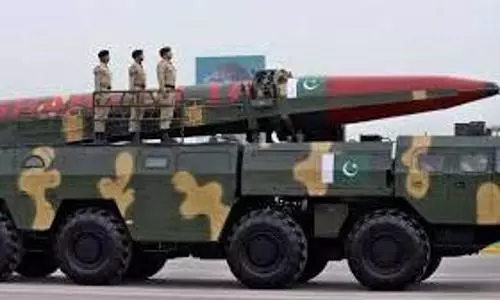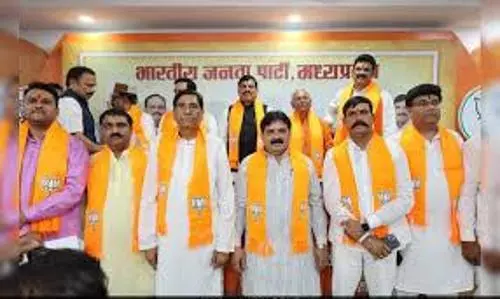
Shameful and horrible!
text_fieldsWhen the blazing wind of racial genocide was blowing through the streets of Delhi, we were of the impression that the government was in a slumber of indifference. No, never. They were vigilantly watching events and on the prowl for the moment to intervene, observing happenings without closing their eyelids. They had only to spot that moment with two orders from Justice Muralidhar of Delhi High Court. Pained by Delhi being thrown into a cauldron of violence, Justice Muralidhar ordered Solicitor General Tushar Mehta to direct the police not to let 1984 repeat and to file cases against three BJP leaders whose vitriolic speeches had triggered the planned violence in the capital.
The judge also criticised the police inaction that posed a hurdle to the treatment of the injured in hospitals. At 1 a.m, he also ordered adequate treatment to be provided to the injured. Thus the efficiency of the union government was revealed before the country. But before dawn, Justice Muralidhar was transferred to the Punjab-Haryana High Court through an order issued by the union law ministry. The government's alertness was so high that on the collelgium recommendation which had been sitting with the government since 12 February, was implemented within hours of the judge's order even without putting a date on it. It is no more unusual in the country for orders to be issued and court benches to be reshuffled at or past midnight.
Justice Muralidhar was presiding over the bench in its three sittings over the urgent petitions submitted by Harsh Mander and Farah Naqvi about police dithering during Delhi violence. The petition seeking the immediately required follow-up treatment for the seriouly injured admitted to Al Hind Hospital, was heard by him on Wednesday midnight. And he ordered that the police should not impede the patients' being moved to GBT Hospital. When Justice Muralidhar raised the rod of law for the victims and against the racism of Delhi police, what the bench headed by Chief Justice DN Patel - who promptly took over the case from him - implemented was clearly the bidding of the central government.
Thereafter the court acceded to all the arguments of Tushar Mehta and granted Delhi police time until 13 April to decide whether or not to file a case against the hate speakers. The court also accepted Mehta's request to implead the Union government in the case. The sudden return of chief justice DN Patel who was on leave, was as baffling as the transfer of Justice Muralidhar. True, there is lack of clarity among the bar whether he cut short his leave or was originally scheduled to resume duty on Thursday. And if any one wants to believe that the chief justice's taking over of the case and Justice Muralidhar's transfer were merely coincidental and a normal routine action of appointments, it is certain that India is not very far from Rohingya, and also that the India of 2020 is very close to the Germany of 1938.
When the shroud of fascism is enveloping the country, the neutrality and judicial sense of the higher judiciary is coming under public trial. The perception that courts are becoming subservient to executive fiats is strengthening by the day. Or what kind of credibility is being created when two benches of a court order two kinds of verdicts within a span of 24 hours? There is also a strong impression that cases against the Citizenship Amendment Act (CAA) are also being delayed by the Supreme Court in favour of the central government. The February issue of 'Caravan' magazine has come out throwing light on the dark world of administration of justice under former chief justice Ranjan Gogoi's
Most recently, Justice Arun Mishra's highly encomiastic comments about the prime minister at the international judicial conference held in the Supreme Court stunned the legal world. The Supreme Court Bar Association passed a resolution disapproving of his eulogy. The Bar Association of India also shared the concern that Justice Mishra's speech was beyond permissible limits of courteous compliments. They all bemoan that the impartiality and independence of the judiciary are being eroded, invoking the concept that it is a basic constitutional and moral duty of judges to maintain the distance with those in power. But the precedent of this distance between the judiciary and the executive seems to be coming to an end. While witnessing acts that violate the principle of keeping justice administration free and away from all other constitutional institutions as enshrined in Article 50, what else can they be called than shameful! And what other word to use for the crisis point when neutral justice becomes a myth, than horrifying!























